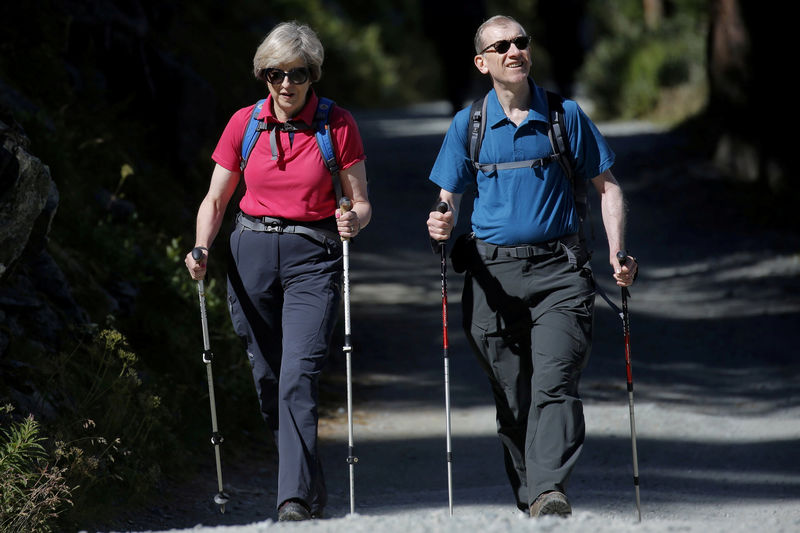By Matthew Green
LONDON (Reuters) - British Prime Minister Theresa May said her surprise at the rapid retreat of a glacier she knew from years of walking holidays in the Swiss Alps had strengthened her resolve to commit Britain to a new target of net zero carbon by 2050.
With impacts from rising temperatures manifesting faster than most models had predicted, scientists see the shrinking of Alpine glaciers as another warning sign that Earth's climate is lurching towards dangerous tipping points.
"My husband and I enjoy walking in the Swiss Alps on our holidays. There is a particular place we go to," May told the Outrage and Optimism podcast hosted by former top U.N. climate negotiator Christiana Figueres.
"And over the last decade, more than a decade probably, at a particular spot, we have seen the glacier retreating at a pace you would not normally expect glaciers to move," May said in the podcast, recorded late on Tuesday.
While scientists say the climate crisis is exacerbating natural disasters from floods to wildfires, slower-paced but increasingly visible changes to natural landscapes are also unsettling growing numbers of people.
Last summer's northern hemisphere heat-wave was among the factors that motivated people to join civil disobedience movement Extinction Rebellion, which forced Britain's parliament to declare a symbolic "climate emergency" in May.
Britain became the first G7 nation to enshrine the target of net zero carbon by 2050 into law last week - a move in line with the 2015 Paris Agreement to curb greenhouse gas emissions, which Figueres played a key role in delivering.
Although the government's decisions to support fracking, cut subsidies for solar power and back a third runway at London's Heathrow Airport have raised questions about its commitment to a low-carbon economy, May said she hoped other countries would adopt a similar target.
Britain said on Tuesday it would bid to host United Nations' climate talks in 2020, with Italy holding a preliminary session. Next year is an important phase for the Paris Agreement, with nations due to announce more ambitious emissions cuts.

“This will be an opportunity to demonstrate continuing European leadership on climate change,” May said.